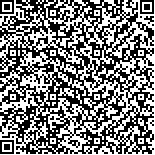| Quote
: |
王荣莉,刘雁峰,周雨玫,杜仪,赵静洁,李丽,孔春梅.温肾添精方联合维生素E治疗反复种植失败肾阳虚证的临床观察[J].湖南中医药大学学报英文版,2022,42(1):114-119.[Click to copy
] |
|
| |
|
|
| This paper
:Browser 3112times Download 1118times |
| 温肾添精方联合维生素E治疗反复种植失败肾阳虚证的临床观察 |
| 王荣莉,刘雁峰,周雨玫,杜仪,赵静洁,李丽,孔春梅 |
| (北京中医药大学附属护国寺中医医院妇科, 北京 100083;北京中医药大学东直门医院妇科, 北京 100027;首都医科大学附属北京友谊医院中医科, 北京 100050) |
| 摘要: |
| 目的 分析反复种植失败(recurrent implantation failure,RIF)肾阳虚证患者因-症关系,并探讨温肾添精方联合维生素E对患者子宫内膜容受性(endometrial receptivity,ER)及焦虑情绪的影响。方法 选取2014年6月至2020年12月北京中医药大学附属护国寺中医医院妇科及生殖科门诊收治的RIF肾阳虚证患者76例,采用随机数字表法将患者分为对照组(n=36)和观察组(n=40)。对照组患者月经周期第5天起服用维生素E软胶囊,服用1个月经周期,经期不停服;观察组在服用维生素E的基础上,予以温肾添精方,至B超确认排卵后停服,经期停服,连续服用3个月经周期。应用Apriori算法分析患者因-症关系,对比两组患者治疗前后中医证候积分、血清雌二醇(estradiol,E2)、卵泡刺激素(follicle stimulating hormone,FSH)、促黄体生成素(luteinizing hormone,LH)水平、子宫内膜厚度、分型(A型、B型和C型)、血管形成指数(vascularization index,VI)、血流指数(flow index,FI)、血管形成-血流指数(vascularization-flow index,VFI),采用焦虑自评量表(self-rating anxiety scale,SAS)和抑郁自评量表(self-rating depression scale,SDS)评估两组患者治疗前后的焦虑及抑郁状态,计算两组患者治疗后的胚胎种植率和临床妊娠率。结果 RIF肾阳虚证病因主要有饮食不节、压力过大、湿热郁滞和人工流产不当,并且均与畏寒、肢冷和舌淡高度相关。治疗后,观察组患者血清E2水平、子宫内膜厚度、A+B型内膜比例、VI、FI、VFI、胚胎种植率及临床妊娠率较对照组均显著升高或增加(P<0.05),血清FSH、LH水平较对照组均显著降低(P<0.05)。治疗后,观察组SAS评分显著降低(P<0.05),观察组SDS评分与治疗前比较,差异无统计学意义(P>0.05);对照组治疗前后SAS评分、SDS评分比较,差异均无统计学意义(P>0.05);与对照组比较,观察组SAS评分显著降低(P<0.05),两组SDS评分比较,差异无统计学意义(P>0.05)。结论 RIF肾阳虚证因-症关系符合阴阳互根作用,温肾添精方联合维生素E可改善RIF肾阳虚证患者子宫内膜形态和子宫内膜血流动力学,缓解焦虑情绪,从而提高ER,提高胚胎着床率和妊娠率。 |
| 关键词: 反复种植失败 不孕 肾阳虚 温肾添精方 维生素E 子宫内膜容受性 焦虑 |
| DOI:10.3969/j.issn.1674-070X.2022.01.023 |
| Received:October 14, 2021 |
| 基金项目:北京中医药大学附属护国寺中医医院院级科研课题(2008-8);北京市中医药科技发展资金项目(JJ-2020-41)。 |
|
| Clinical observation of Wenshen Tianjing Recipe combined with vitamin E in patients with repeated implant failure of kidney Yang deficiency syndrome |
| WANG Rongli,LIU Yanfeng,ZHOU Yumei,DU Yi,ZHAO Jingjie,LI Li,KONG Chunmei |
| (Department of Gynecology, Huguo Temple Hospital of Traditional Chinese Medicine Affiliated to Beijing University of Chinese Medicine, Beijing 100083, China;Department of Gynecology, Dongzhimen Hospital, Beijing University of Chinese Medicine, Beijing 100027, China;Department of Traditional Chinese Medicine, Beijing Friendship Hospital, Capital Medical University, Beijing 100050, China) |
| Abstract: |
| Objective To analyze the cause-symptom relationship of patients with repeated implant failure (RIF) of kidney Yang deficiency syndrome, and to explore the effects of Wenshen Tianjing Recipe combined with vitamin E on endometrial receptivity (ER) and anxiety of patients. Methods A total of 76 RIF patients with kidney Yang deficiency syndrome were admitted to the Department of Gynecology and Reproductive Department of Huguo Temple Hospital of Traditional Chinese Medicine Affiliated to Beijing University of Chinese Medicine from June 2014 to December 2020 were selected, and the patients were divided into control group (n=36) and observation group (n=40) by random number table method. The control group was given vitamin E soft capsule from the 5th day of menstrual cycle, took 1 menstrual cycle without stopping during menstruation, and the observation group was given Wenshen Tianjing Recipe treatment on the basis of vitamin E, and stopped taking it until B-ultrasonography confirmed ovulation, and stopped taking it during menstrual period for 3 consecutive menstrual cycles. Apriori algorithm was carried out to analyze the cause-symptom relationship of patients. TCM syndrome score, serum estradiol (E2), follicle stimulating hormone (FSH) and luteinizing hormone (LH) levels, endometrial thickness, classification (type A, B and C), vascularization index (VI), flow index (FI), vascularization-flow index (VFI) of patients in two groups were compared before and after treatment. Self-rating anxiety scale (SAS) and self-rating depression scale (SDS) were used to evaluate the status of anxiety and depression of patients in two groups before and after treatment. The embryo implantation rate and clinical pregnancy rate after treatment were calculated. Results The main causes of RIF patients with kidney Yang deficiency included poor diet, excessive pressure, dampness-heat stagnation and improper artificially induced abortion, which were highly correlated with chills, cold limbs and pale tongue. After treatment, serum E2 level, endometrial thickness, A+B type endometrial ratio, VI, FI, VFI, embryo implantation rate and clinical pregnancy rate of the observation group were significantly higher than those of the control group, while serum FSH and LH levels were significantly lower (P<0.05). After treatment, SAS score of the observation group was significantly decreased (P<0.05), while SDS score of the observation group was not significantly different from that before treatment (P>0.05); there was no significant difference in SAS score and SDS score of the control group before and after treatment (P>0.05); compared with the control group, SAS score of observation group was significantly decreased (P<0.05), but SDS score of two groups had no statistical significance (P>0.05). Conclusion The cause-symptom relationship in RIF patients with kidney Yang deficiency syndrome is consistent with the effect of mutual rooting of Yin and Yang. The combination of Wenshen Tianjing Recipe and vitamin E can improve endometrial morphology and endometrial hemodynamics in RIF patients with kidney Yang deficiency syndrome, relieve anxiety, and thus improve ER, embryo implantation rate and pregnancy rate. |
| Key words: repeated implant failure infertility kidney Yang deficiency Wenshen Tianjing Recipe vitamin E endometrial receptivity anxiety |
|

二维码(扫一下试试看!) |
|
|
|
|


